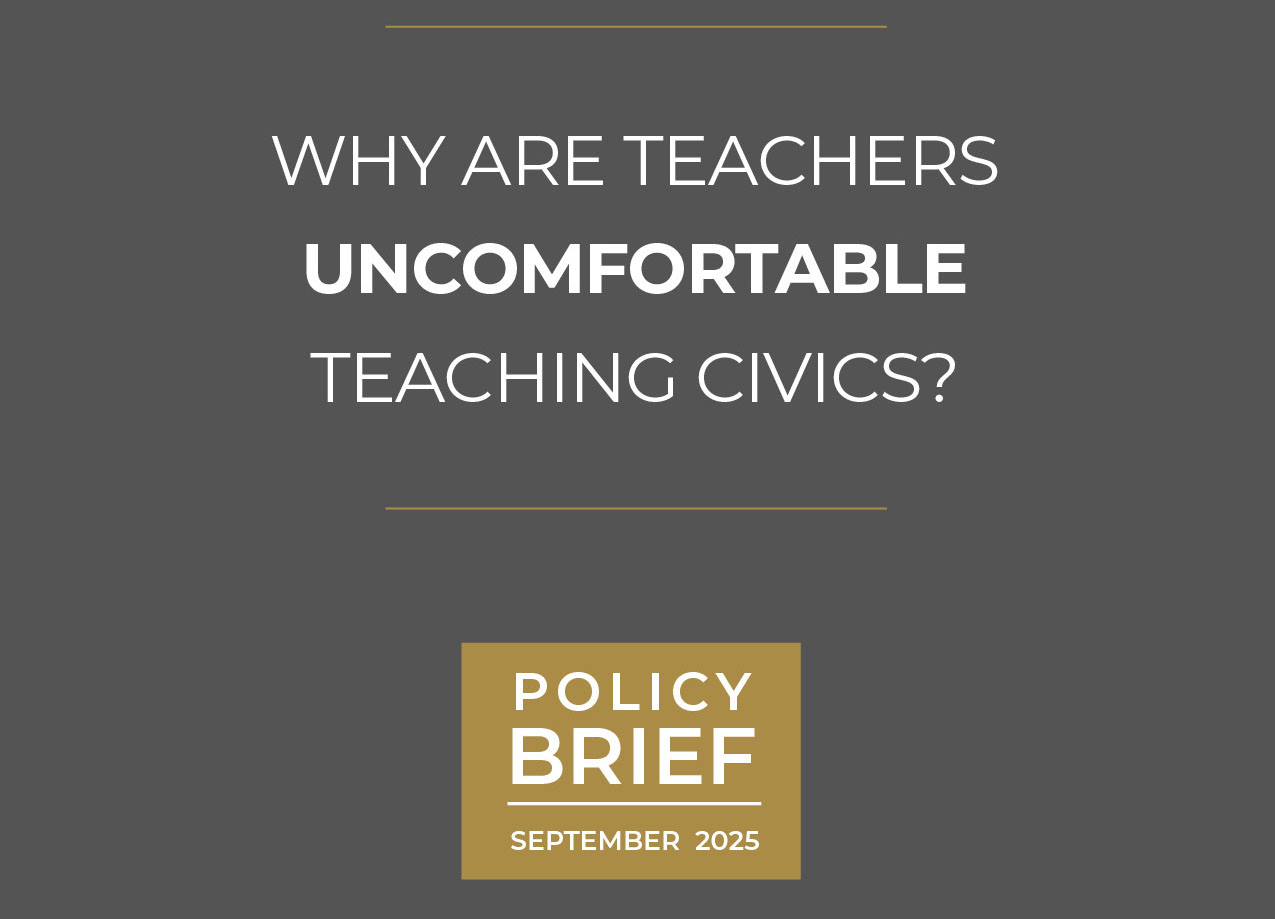Survey: Nearly 80% of Civics Teachers Have Self-Censored in the Classroom
PHOENIX, ARIZONA / ACCESS Newswire / September 8, 2025 / The Sandra Day O'Connor Institute today released a new policy brief, Why Are Teachers Uncomfortable Teaching Civics?, offering an urgent diagnosis of the discomfort and disorientation many civics teachers report when asked to teach the very subject they were hired to deliver.
Why Are Teacher Uncomfortable Teaching Civics
The report's central finding: K-12 civics teachers across the country feel underprepared, unsupported, and increasingly afraid to teach vital material.
Based on original survey data collected by the O'Connor Institute from highly experienced civics educators nationwide, the brief reveals that:
Almost 80% of civics teachers say they have self-censored in class due to fear of pushback or controversy.
Nearly 86% report that fear of controversy is a primary challenge to teaching civics today.
Fewer than one in five teachers surveyed say they receive clear guidance from their school or district on what they are allowed to teach.
These findings underscore a troubling dynamic: in today's political climate, civics teachers are not only unsure of how best to teach-they're unsure whether they'll be supported if they do.
"This report makes clear that we can't expect civics teachers to do their job well if we don't prepare and support them," said Philip L. Francis, co-chair of the Institute's Board of Directors. "We need to give them the tools, the clarity, and the backing to teach with confidence."
The brief outlines four primary reasons for this discomfort:
Inadequate Preparation: Most teacher training programs fail to offer robust civics-specific content or pedagogy. Many teachers begin their careers without having been taught how to handle current events, classroom debate, or constitutional instruction.
Fear of Controversy: Political polarization and public pressure have made teachers wary. The brief shows that many teachers avoid complex civic topics altogether to reduce risk, watering down instruction in the process.
Lack of Institutional Guidance: With vague state standards and little district-level clarity, civics teachers are left to guess at what's acceptable, heightening uncertainty and inconsistency in classrooms.
Fragmented Civic Purpose: Without shared training or common goals, teachers bring divergent views of civic education to the classroom-undermining coherence and weakening the civic mission of public education.
This is the third major civics education policy brief from the O'Connor Institute. Together, these reports form a growing body of research aimed at strengthening civic learning and trust across generations.
The new brief concludes with practical recommendations for education leaders and policymakers: invest in stronger teacher preparation, provide clear and content-rich standards, support educators who tackle challenging topics, and build school cultures that model inquiry, complexity, and respectful disagreement.
As the United States approaches its 250th anniversary, we are reminded that our system of government is not self-sustaining. It must be taught-clearly, confidently, and without fear. That starts with teachers who are prepared, supported, and empowered to pass on the civic inheritance every American deserves.
To read the full brief, visit: oconnorinstitute.org/research2025
About the Sandra Day O'Connor Institute
Founded in 2009 by Justice Sandra Day O'Connor following her retirement from the U.S. Supreme Court, the nonpartisan nonprofit continues her distinguished legacy and lifetime work to advance multigenerational civics education, civil discourse and civic engagement. The vision of the Institute is to create a nation where important policy decisions affecting our future are made through a process of critical analysis of facts and informed participation of all citizens. Learn more at OConnorInstitute.org.
Contact Information
Heather Schader
hschader@oconnorinstitute.org
602-730-3300 x8
Related Video
https://www.youtube.com/watch?v=evRAO95OtiI
SOURCE: Sandra Day O'Connor Institute
View the original press release on ACCESS Newswire
